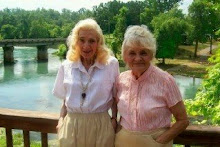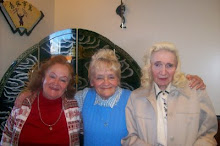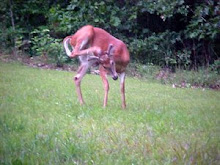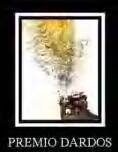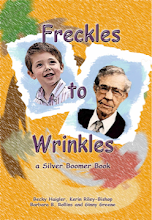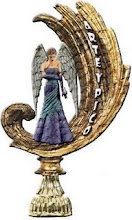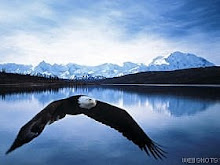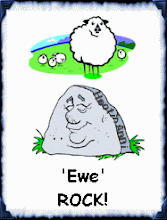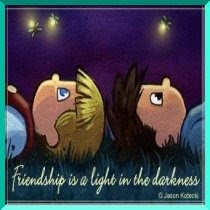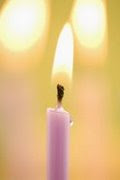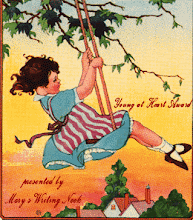
When we arrived in the refugee camp in Austria, after fleeing our war-torn country Hungary
just a few weeks before Christmas of 1947, I was 11 and had become resigned to not having much.
The refugee camp, with its wooden barracks, and dusty lanes, was pretty drab. But we had a warm place to sleep, warm food to eat, and were outfitted with warm clothes donated towards the refugee effort from various generous-minded countries like the United States, Canada and Great Britain. So we considered ourselves pretty fortunate. Plus we had some of the most beautiful views available, free to anyone who wished to look, since the camp was located in one of the most scenic areas of Austria-Carinthia.
As Christmas approached, the refugee camp school I attended made plans to help us celebrate the holiday as a group. In the barracks where we lived, our private spaces were tiny cubicles, where we slept. There was no room for individual celebrations. But the school had a large auditorium, where a donated Christmas tree was set up. We children created hand made ornaments, which we used to decorate the tree. There were even candles on the tree, to be lit on Christmas Eve–just like in Hungary, before the war. We stayed busy rehearsing a school play that was to be presented on Christmas Eve. I had a small part as the angel who announces the birth of the Savior to the shepherds. I was very pleased and excited about the part.
On Christmas Eve afternoon, my grandparents and I decided to take a walk to the small town of Spittal, just a few miles away from the camp. Grandfather felt that even though we had no money to buy anything, taking in the Christmas sights and smells would be worth the walk. The town's cobbled streets, with its many small shops were decorated with fir branches, and small trees in shop windows glowed with lit candles. People were hustling and bustling, getting last-minute things for the holiday, and wishing each other "Froliche Weinachten."
We stopped in front of the bakery, and inhaled the delicious smells coming out of it each time someone opened the door. I gazed at the napoleons, displayed in the window, my mouth watering. "Oh, they must taste so delicious," I said wistfully.
"And that poppy-seed cake looks wonderful, too," Grandmother sighed.
"Maybe this wasn’t such a good idea," Grandfather said sadly. "Now everyone is hungry for something they can not have."
"But who is to say that you can not have a napoleon, or some of that poppy-seed cake?" a voice behind us asked. As I turned around, a woman in a fur coat and hat took my hand.
"Come on, let us all go into the bakery."
"Oh, no!" I protested, trying to pull my hand out of hers. But she wouldn’t let go, and inside the bakery, bought a large napoleon square and a horseshoe-shaped cake just for us.
"Froliche Weinachten," she called out merrily, then disappeared into a crowd of people. A Christmas angel in a fur coat!
On the way back to the refugee camp, as I sank my teeth into that delicious, custard-filled napoleon and got powdered sugar all over myself, I felt very blessed. Although we lived in a refugee camp, my grandparents and I had much to be thankful for.
That evening, Christmas Eve, the candles on the community Christmas tree were lit, and all the adults came to watch our Christmas play. Everyone remembered their lines, and the choir sang some beautiful, Hungarian Christmas songs. Many people had tears in their eyes. And if that wasn’t enough, each of the children were given a present from underneath the tree.
When I opened mine, I found a pair of pink, fuzzy mittens and matching scarf in the box, and inside one of the mittens, there was a little note, written in English: "Merry Christmas from Mary Anne in Buffalo, New York, United States of America." Imagine that! A gift from a girl all the way in America! I wondered how old she was, what she looked like, and what she liked to do. I couldn’t help but think of her as I drifted off to sleep that night.
When I awoke on Christmas morning, the sun was shining brightly. I heard noises coming through the thin wooden boards of the barrack.
"Good morning, sweetheart. Merry Christmas," Grandmother said cheerily.
"Why is there so much noise out there already?" I asked sleepily, rubbing my eyes.
"Well, I guess some early rising children are enjoying all the newly fallen snow."
"Oh, did it snow?" I asked, leaping from the cot and reaching for some warm clothes to put on. "How wonderful! Where is Grandfather?"
"He and some of the other men are shoveling some paths, so people can go for their breakfast, and then to church."
Within seconds, I was out there, too, marveling at nature’s power to turn a drab refugee camp into a pristine, winter wonderland!
Soon, the surrounding, snow-covered hills were filled with squealing Austrian children, sledding down those hills in their new Christmas sleds, or flying down on their new skis. Meanwhile, refugee camp children built snow men, had snowball fights, and made snow angels, squealing with just as much delight. Nature's gift of snow was free for everyone to enjoy!
As I stood there and gazed at the beautiful snow covered mountains, my heart filled with joy and I said a quick prayer of thanks. For those few days in 1947, it didn’t matter that we were in a refugee camp. From the angel in the fur coat who bought us pastries, to the candles on the Christmas tree, the joyful school play, the unexpected presents, and the fluffy white snow, God had made our holiday extra special.
...........
Have a Merry and Blessed Christmas, everyone! Thank you for visiting and reading my little story. God bless you!
"Unexpected Gifts" was first published in, Whispers from Heaven Magazine, in 2002. Copyright by Renie Burghardt
The picture of the snow covered mountains is of a mountain range in Carinthia, Austria, courtesy of FreeFoto.com







 Of course, it never fails. Whenever I'm outside, the deer appear. Here is a doe and her teen aged fawn, posing for me nicely.
Of course, it never fails. Whenever I'm outside, the deer appear. Here is a doe and her teen aged fawn, posing for me nicely. And here comes another doe with her twin fawns. The fawns will hang out with "mom" even after she has new "kids," next spring, and even after they give birth to their own young. The bucks stay with "mom" for about a year, after that they join the "boys," who usually hang out together in the woods.
And here comes another doe with her twin fawns. The fawns will hang out with "mom" even after she has new "kids," next spring, and even after they give birth to their own young. The bucks stay with "mom" for about a year, after that they join the "boys," who usually hang out together in the woods. 













